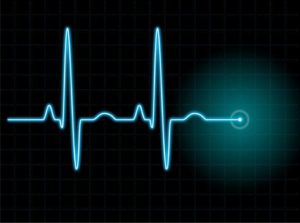Theia Interactive has unveiled a new set of biometric tracking tools to help developers gauge the impact and effectiveness of different virtual reality experiences. The Claria suite is designed specifically for the HP Reverb G2 Omnicept Edition headset, and uses the Reverb’s biosensors to capture the wearer’s physiological reaction to VR material.

The full suite technically covers six separate biometric modalities, including heart rate and heart rate variability, in addition to overall cognitive load and eye vector, pupillometry, and saccade. Taken together, those metrics can let developers know exactly what the wearer is looking at, and whether or not they are enjoying the experience. The data can then be viewed as a heat map or a graph to help developers visualize the information.
According to Theia, Claria can help content developers identify design elements that may be confusing, while marketers can hone in on the things that draw people’s attention. The company believes that Claria also has clinical applications, since it allows mental health professionals to pinpoint the things that the subject finds calming or stressful.
“Knowing a person’s true, unfiltered reaction means that anyone designing products or trying to attract people has a significant advantage over those relying on traditional methods,” said HP XR GTM and Developer Relations Senior Manager Jay Fraser.
“Claria takes the guesswork out of designing products and campaigns,” added Theia Co-Founder and CEO Bill Fishkin. “We can put someone in VR and know exactly what excites them to arrive at better designs through more informed decisions.”
Claria is compatible with the Unreal Engine, and can support multiple users at the same time. An early access version of the platform is available now, while the full launch is expected sometime before the end of 2021.
Apple recently tried to patent its own eye tracking system for VR headsets, while the video game developer Valve is working on a Brain-Computer Interface that would allow people to interact with VR experiences without needing to use a controller. In the meantime, Frost & Sullivan has predicted that the market for VR and AR technology will hit $661.40 billion by 2025.
–
(Originally posted on FindBiometrics)

Follow Us